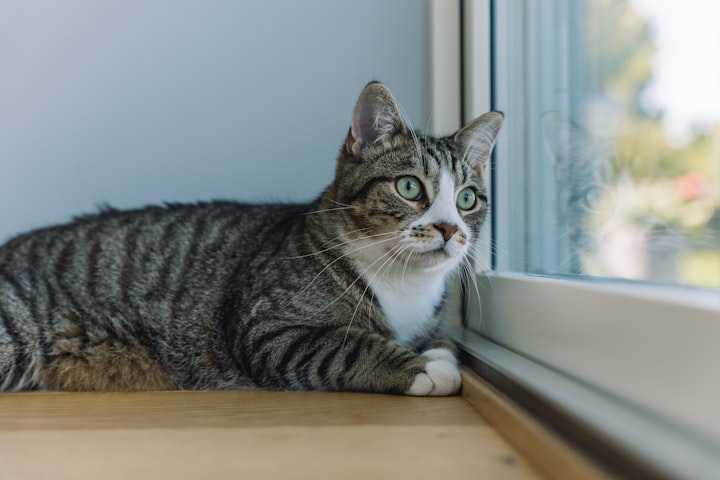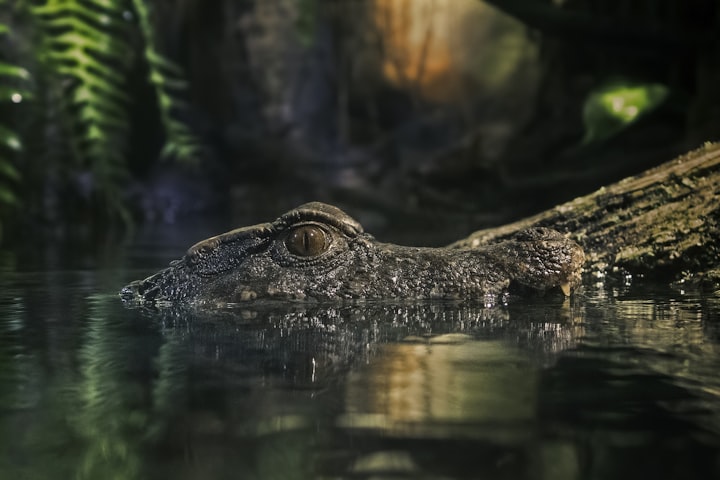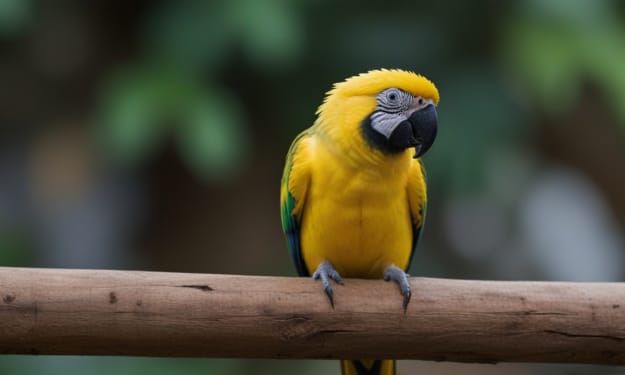You Should Keep Your Cat Indoors
The Hidden Impact: Unveiling the Environmental Harm and Risks Caused by Outdoor Pet Cats
“You really need to keep that cat inside, you know”
“I know, I know! It’s just, she’s so happy when she’s running around our yard. And she’s always scratching at the door to go out.”
I was in the middle of the back seat of a beat-up Sedan, as two friends in the driver’s and passenger’s seats debated passionately about the driver’s new adventurous kitten. We were stopping by her family’s house to pick up forgotten snacks and were immediately greeted with meows as we parked.
The passenger turned back with an expression begging me for support. “Aren’t you, like, a bird person? You should know about how bad outside cats are.”
“Oh, yeah,” I said, a little reluctant to take a side, “they do definitely harm a lot of the little species around here for sure.”
“Not to mention, you live in coyote territory, girl. She’s coyote-snack-sized”, said the passenger.
Our driver shrugged, unconvinced.
This little conversation left a residual curiosity about the effect of outdoor cats around the U.S. With so many acquaintances spouting anecdotes of dead birds being brought to their doorstep and coyotes carrying housecats in their maws, I couldn’t help but wonder just how grand of an issue it truly was. So, like the modern young person I am, I turned to Google for an answer. With a bit of investigation, I discovered that the problem was far worse than even I, a “bird person”, had comprehended.
Seriously, pet cats should be kept indoors. Here’s why:
Outdoor Cats Greatly Contribute to the Harming of Wildlife
Remember that strange anti-windmill tirade by a certain politician in 2020 that suggested that wind energy “kills all the birds?”. News organizations pounced on the opportunity to, rightfully, fact-check such an incredible claim. It was, indeed, false, but the stats that were then reported to refute it painted quite a startling picture of the safety of birds in the United States. Due to the reports, it became apparent that our feline friends were causing a heap of trouble for vulnerable native species — the majority of the trouble, actually.
“In North America, cats are second only to habitat loss as the largest human-related cause of bird deaths. It’s estimated that cats kill 1.3–4 billion birds each year in the U.S. alone”, reports the Cornell Lab. In 2017, the Fish and Wildlife Service corroborated this report, estimating that roughly 2.4 billion birds are killed by cats annually in the United States. Considering the total for that year was an estimated 3.3 billion, it’s clear that outdoor cat impact on small wildlife is a massive issue.
For those curious, only 234,000 bird deaths were caused by wind turbines the same year.
Outdoor Kitties Often Become Vectors for Disease Spread
It isn’t only the little prey critters who struggle because of outside-roaming cats. Unfortunately, cats are also particularly good at spreading diseases to wild animals, other pets, and us. In the United States, cats are one of the most likely sources of human rabies when compared to other domestic animals. Additionally, they are one of the more significant spreaders of Toxoplasma gondii, cutaneous larval migrans, and, seriously, even the plague.
If you allow your fuzzy companion to wander outside, they are nearly 3 times more likely to pick up a parasite than an indoor counterpart. And, because of their often curious behavior, infected kitties are prone to spreading fleas, ticks, roundworms, and heartworms to endemic species while they’re wandering. According to the National Institute of Health, “While outdoors, cats are likely to interact with a variety of other companion animals and wildlife, and these types of interactions have the potential to increase the risk of disease exposure and transmission, especially if the cat is not vaccinated”. This is, of course, horrible news for populations of native species who are already struggling as we continue to develop land.
Side note: Whether or not your cat is allowed outside, this is your official reminder to get your cat vaccinated! It’s remarkably important, no matter the lifestyle of your pet. You can learn more here.
Outdoor Cats Enter Competition with Other Outdoor Predators
It’s no secret that native predators have struggled in regions where human development has occurred. Omnivorous and carnivorous wild animals like coyotes, raccoons, etc. already have it rough with habitat loss, hunting, and other human activities. When cats are outdoors, they hunt small birds and mammals, which so happens to be what makes up a significant proportion of many wild predators’ diets. But they aren’t only harming the cute little creatures, they’re also making it more difficult for wild hunting animals to survive. Outdoor cats compete with local wildlife for birds, mice, and small critters, putting additional strain on wildlife populations where they’re present.
Not only do outdoor cats make survival more difficult for carnivores and omnivores, but they also cause them to stray further into developed human land and make them more likely to attempt to eat your outdoor cat. A starving animal is an animal that will take greater risks to catch a meal, even if that means crossing freeways and hopping fences into backyards. If you’ve noticed an increase in wild predator animals on your property, the local outdoor cats may be partially to blame for this phenomenon.
Being Outdoors Is Exceptionally Dangerous For Your Cat
If none of the above is convincing enough, consider this: when you let your cat out, you’re risking their life. That cherished pet of yours may get lost, stolen, injured, or even worse when they’re out in the world on their own. The modern neighborhood is not a safe place for a cat. Besides all of the potential harm that your cat can cause to your local wildlife, the environment you live in has many dangers that may cause harm to your pet. So much so that the lifespan of an outdoor cat is only 2–5 years, while indoor cats usually live 10–20 years.
One of the best ways you can lengthen the lifespan of your pet is to keep it safe inside. Indoor kitties are less likely to become lost or injured, and indoor care significantly decreases their chances of catching infectious diseases, getting into fights, and generally engaging in activities that will risk their life. If you want to keep your cat around into their old age, keep them indoors.
--
For the sake of our environment, which certainly needs all the help it can get these days, I implore you to consider keeping your feline indoors. Cats are one of the leading causes of bird death in the United States, and their incredible ability to outcompete local predators and spread diseases further disrupts the ecosystems we live in. And, of course, there’s the bonus of keeping your feline family member healthier, with a longer lifespan and fewer of those dreaded vet visits. By embracing responsible pet ownership, advocating for community-based initiatives, and championing innovative solutions to keep our indoor cats happy, we can forge a path toward a harmonious coexistence where both cats and the environment thrive. Together, let’s continue to nurture a world where cats find solace within our homes, and the beauty of the natural world remains unmarred by the unintended consequences of our companionship.
--
Do you have an outdoor cat and wish to make a change to improve your neighborhood and your cat’s health? The Animal Humane Society has an excellent article that covers how you can gradually transition your kitty to being happy indoors. I also recommend checking out this article by Paws.org, which offers additional tips on keeping your cat happy while inside.
--
Cross-posted from my Medium. Follow my main account for weekly articles! :)
About the Creator
Olivia L. Dobbs
Science Enthusiast, Naturalist, Dreamer, Nerd.
I crosspost my Medium articles here :)
You can find my main account on Medium: https://medium.com/@oliviadobbs13
Check out my science! -> bit.ly/DobbsEtAl







Comments
There are no comments for this story
Be the first to respond and start the conversation.